Iran set to cold test redesigned Arak heavy water reactor soon
The Atomic Energy Organization of Iran (AEOI) says the country plans to cold test the redesigned version of the Arak heavy water reactor shortly before it becomes fully functional, as Tehran steps up its counter-measures against America’s withdrawal from a multilateral nuclear deal with the Islamic Republic.
In a statement to Iranian media on Friday, Behrouz Kamalvandi, the AEOI’s spokesman, elaborated on the retaliatory measures that the nuclear organization plans to take in the aftermath of Washington’s May 2018 withdrawal from the Iran deal, formally named the Joint Comprehensive Plan of Action (JCPOA).
“Enrichment [of uranium] is among the AEOI’s most important activities, but the organization is actively at work in other sectors as well. Enrichment may have come under the spotlight due to political issues, but work is well under way in other sectors as well,” he said.
Among those plans, Kamalvandi referred to the project of redesigning and upgrading Iran’s Arak heavy water and said there would be a cold test of the redesigned reactor in the early months of the new Persian calendar year, which will begin on March 20.
This, he added, “will be prelude to its full commissioning a year later. This means we have fulfilled a range of required tasks in the fields of fuel, storage, and etc.”
Under the 2015 deal initially signed between Tehran and six major world states, Iran agreed to redesign the Arak reactor to cut its potential output of plutonium.
China and the US — two of the JCPOA signatories — first formed a working group tasked with helping Iran modernize the facility, but Britain — another party to the deal — later replaced the US after Washington unilaterally abandoned the agreement.
The reactor — located about 250 km southwest of Tehran — produces isotopes for medical and agricultural use in Iran.
“Following America’s withdrawal, the work on redesigning the Arak reactor slowed down, but the Chinese continued [the job,] and we ourselves, besides the Chinese, tried to advance the project since Iran is the main entrepreneur after all,” Kamalvandin explained.
He said Iran has learned from experience with the manufacturing of the reactor’s previous version.
Back then, the official added, the project was hindered as Iran faced problems in providing six major pieces of equipment, “but this time, we tried to provide the major equipment first before going ahead with other jobs.”
‘IAEA cooperation with Iran not satisfactory’
Kamalvandi was also asked about the quality of Iran-IAEA cooperation since May 2019, when Iran resorted to Article 36 of the JCPOA, which allows a party to suspend parts of its contractual commitments in case of the other sides’ non-compliance.
Under the deal, the IAEA has been monitoring the technical implementation of the JCPOA. Prior to Washington’s withdrawal, the UN nuclear watchdog confirmed Iran’s full compliance with the deal in all of its quarterly reports, but ever since the exit, the Agency has been mixing politics with technicalities under pressure from the US and its closest regional ally, Israel.
“Although the Agency should act as a technical body, it is influenced by the political pressure that some countries exert on it,” Kamalvandi said. “The reports it has issued so far have failed to be unbiased. We have protested many times.”
The nuclear official added that the IAEA is obligated, under the Safeguards Agreements, to protect the data of its member states, but it fails to do so.
‘Biden wrongly imagines he can keep pressuring Iran’
Elsewhere, Kamalvandi criticized the administration of US President Joe Biden for refusing to end the so-called maximum pressure campaign against Iran initiated by ex-president Donald Trump.
Biden claims he is willing to return the US to the Iran deal, but his administration has so far refused to prove that in practice, despite criticizing the withdrawal from the JCPOA and admitting to the failure of the former administration’s pressure policy.
Regardless of the fact that it was America that first threw the JCPOA into crisis by abandoning it, the Biden administration says Tehran should stop its recourse to Article 36 before Washington lifts the sanctions that Trump imposed on Iran after leaving the nuclear deal.
Iran, however, insists that the ball is currently in Washington's court, and that it must first lift all the unlawful sanctions verifiably and practically to regain the right to rejoin the JCPOA.
“The perception of the ruling [Democratic] party in America is that it can once again put pressure on Iran, but if they are wise enough, they have to do a calculation and see what all the pressure exerted by Trump brought about,” Kamalvandi.
He added, “They may be thinking that Iran is in a position of weakness and that may have been the reason why they are prolonging the [nuclear] issue. Nevertheless, it is certain to us that are position is righteous and the future is guaranteed for us.”
‘Ghost town’: 70% of Jabalia buildings destroyed by Israel
Mother’s Day: Sareh Javanmardi’s inspiring journey as Paralympic champion and mother
Russia downs over 40 Ukrainian drones as Putin vows 'destruction' on Kiev
VIDEO | Yemen: A bone in Israeli neck
D-8’s role in Iran’s economy after Cairo summit
China slams US as ‘war-addicted’ threat to global security
China ‘firmly opposes’ US military aid to Taiwan
VIDEO | Press TV's News Headlines


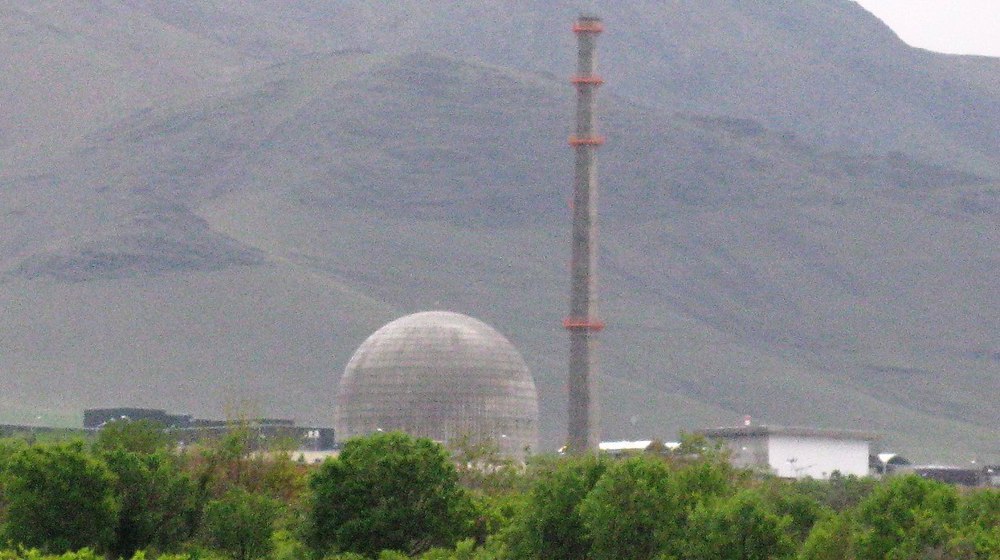






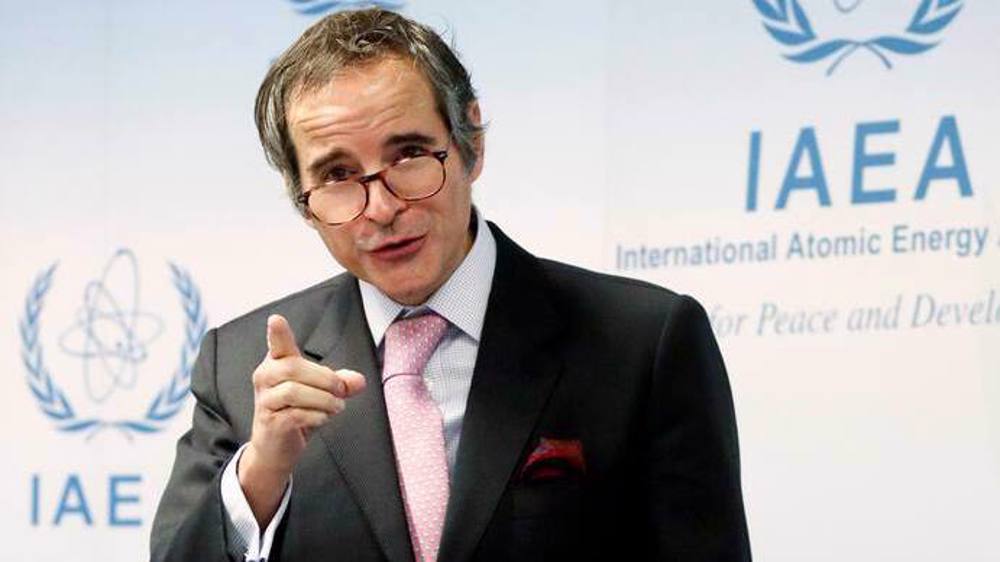
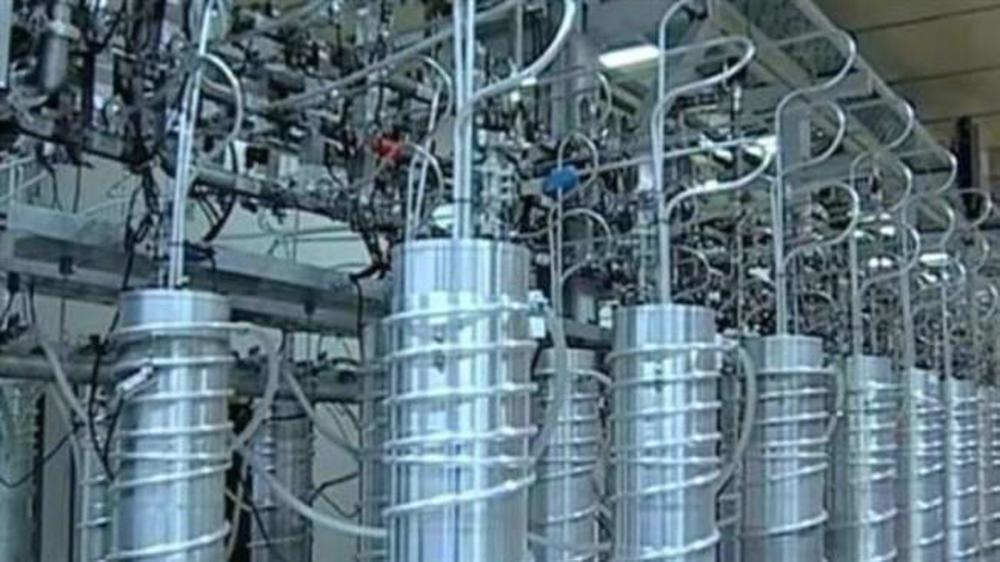
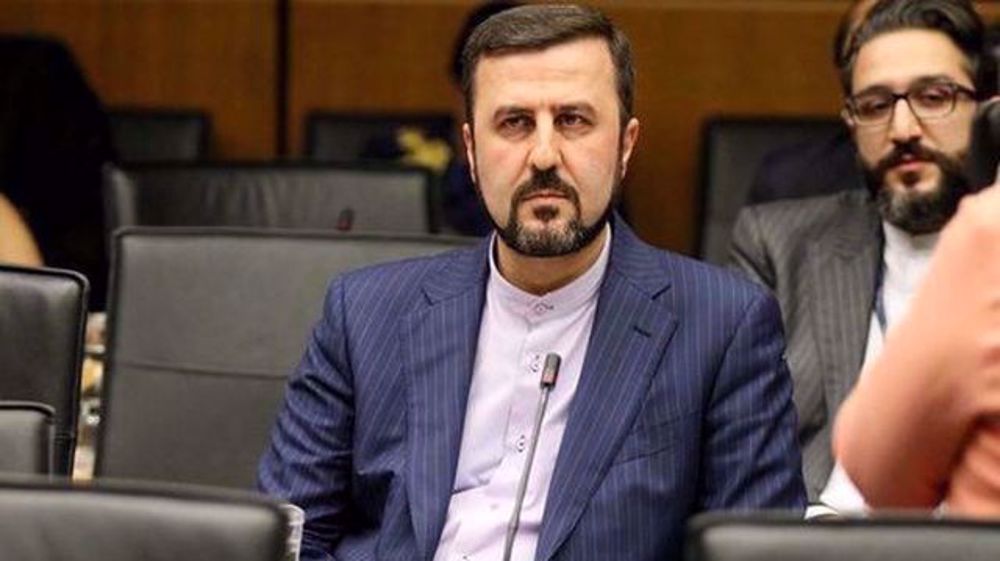
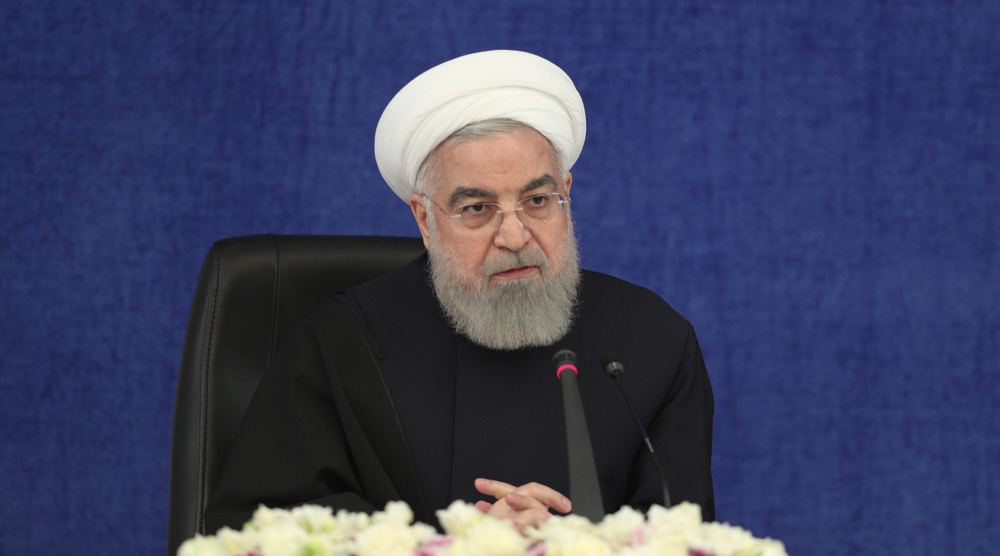

 This makes it easy to access the Press TV website
This makes it easy to access the Press TV website